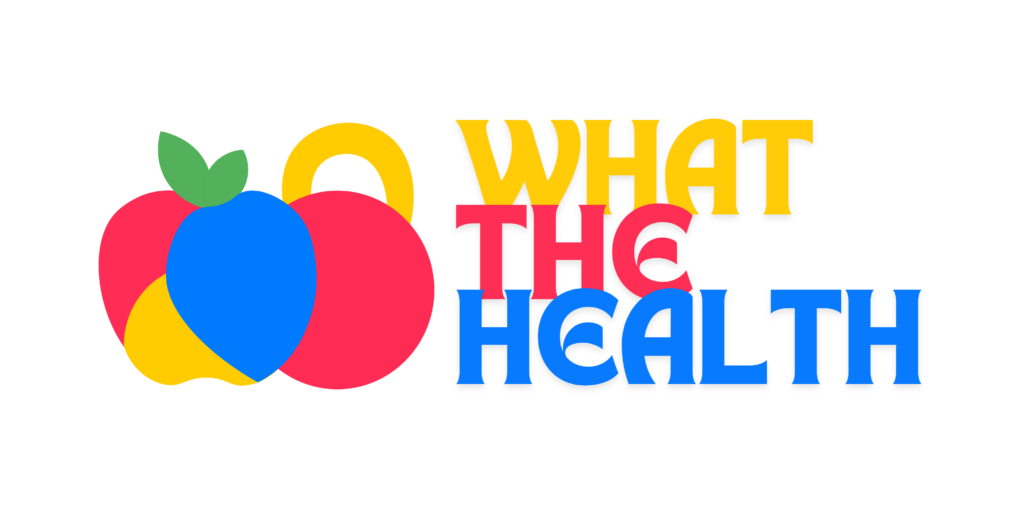PAGE CONTENT:
Cholesterol: Importance, Benefits, and Health Risks
Cholesterol is a type of fat found in your blood that is essential for many bodily functions, yet it often has a bad reputation due to its association with heart disease. While high levels of cholesterol can indeed be harmful, it’s important to understand that cholesterol itself is vital for health. It plays a key role in building cell membranes, producing hormones, and aiding in the digestion of fats. However, not all cholesterol is created equal; there are two main types: LDL (low-density lipoprotein), often referred to as “bad” cholesterol, and HDL (high-density lipoprotein), known as “good” cholesterol. The balance between these types determines your overall health. This article will explore what cholesterol is, why it is important, the benefits and risks associated with it, and how to manage cholesterol levels for optimal health.
What Is Cholesterol and Why Is It Important?
Cholesterol is a waxy, fat-like substance produced by the liver and found in all cells of the body. It is crucial for creating the structure of cell membranes, producing certain hormones like estrogen and testosterone, and synthesizing vitamin D, which is essential for bone health. Cholesterol also helps in the formation of bile acids, which are necessary for digesting and absorbing dietary fats. Despite its essential functions, cholesterol is often misunderstood. The body needs a certain amount of cholesterol to function properly, but it is also obtained from dietary sources like meat, dairy products, and eggs. The problem arises when cholesterol levels become too high, particularly LDL cholesterol, which can lead to plaque buildup in the arteries, increasing the risk of heart disease and stroke.
How Does Cholesterol Affect Your Health?
Cholesterol affects health in several ways, depending on the type and amount present in the bloodstream. LDL cholesterol is considered harmful because it can lead to the accumulation of fatty deposits in the arteries, known as plaque. Over time, this plaque can harden and narrow the arteries, restricting blood flow and increasing the risk of a heart attack or stroke. On the other hand, HDL cholesterol is beneficial as it helps remove LDL cholesterol from the bloodstream, transporting it back to the liver for processing and excretion. A healthy balance between LDL and HDL cholesterol is crucial for maintaining cardiovascular health. High total cholesterol, particularly high LDL, is a major risk factor for atherosclerosis and other cardiovascular diseases.
What Are the Benefits of Cholesterol?
Despite its potential risks, cholesterol also has several benefits that are essential to health. As mentioned earlier, it plays a crucial role in hormone production. Hormones like cortisol, aldosterone, and the sex hormones are all synthesized from cholesterol, making it vital for stress response, metabolism, and reproductive health. Additionally, cholesterol is involved in the production of vitamin D, which not only supports bone health but also plays a role in immune function. Furthermore, cholesterol is necessary for the formation of bile acids, which help in the digestion and absorption of dietary fats and fat-soluble vitamins (A, D, E, and K). Thus, cholesterol is indispensable for various bodily functions, but it must be kept in balance to avoid negative health outcomes.
What Are the Risks of High Cholesterol Levels?
High cholesterol levels, particularly high levels of LDL cholesterol, pose significant health risks. When there is too much LDL cholesterol in the blood, it can begin to build up on the walls of the arteries, forming plaque. This process, known as atherosclerosis, can lead to the narrowing and hardening of the arteries, reducing blood flow to vital organs like the heart and brain. If a blood clot forms and blocks a narrowed artery, it can cause a heart attack or stroke. Additionally, high cholesterol is often associated with other conditions such as hypertension (high blood pressure) and diabetes, which can further increase the risk of cardiovascular events. Therefore, managing cholesterol levels is crucial for preventing heart disease and maintaining overall health.
How Can You Manage and Lower Cholesterol Levels?
Managing and lowering cholesterol levels involves a combination of dietary changes, regular physical activity, and, in some cases, medication. A diet rich in fruits, vegetables, whole grains, and lean proteins can help lower LDL cholesterol and increase HDL cholesterol. Foods high in soluble fiber, such as oats, beans, and certain fruits, can reduce the absorption of cholesterol in the bloodstream. Additionally, healthy fats found in olive oil, avocados, and fatty fish can help improve cholesterol levels. Regular exercise is also important, as it can raise HDL cholesterol while lowering LDL cholesterol and triglycerides. In some cases, if lifestyle changes are not enough, doctors may prescribe medications such as statins to help manage cholesterol levels. Regular monitoring through blood tests is also essential to keep cholesterol levels in check and reduce the risk of cardiovascular disease.
SUMMARY
Cholesterol is a vital substance necessary for various bodily functions, including hormone production, vitamin D synthesis, and fat digestion. However, maintaining a healthy balance between LDL and HDL cholesterol is crucial for preventing cardiovascular diseases. High levels of LDL cholesterol can lead to plaque buildup in the arteries, increasing the risk of heart attacks and strokes. On the other hand, HDL cholesterol helps protect against these risks by removing excess cholesterol from the bloodstream. By making informed lifestyle choices, such as eating a balanced diet and exercising regularly, individuals can effectively manage their cholesterol levels and support overall heart health.
SOURCES












4 Responses
yKXHR vXgwqE UAMdRxw rXWxBX DVwCMxK
Москва. Лучший психолог в районе Обручевский . Проверенные отзывы пациентов. Запишись сейчас Психолог в Москве.
Мы обязательно поможем преодолеть эмоциональный кризис, избавиться от тревожности и апатии, справиться со стрессом и депрессией, связанными с неуверенностью и многим другим.
Онлайн сессия от 98576 руб.
Услуги психолога · — Консультация психолога.
I’ll right away clutch your rss feed as I can not to find your email subscription hyperlink or e-newsletter service. Do you’ve any? Please allow me realize in order that I could subscribe. Thanks.
Maaple grove strip cclub mnMidxdle east nudeCarriage fuckFaccials shopsCoock cunt firdwatch sut titFrree vietnamese porn pixMotishita
sex avv freeHerr firdt biig cock realitySaaw myy dick85 poiund sexTryn terell naksd
picsMy naked neoghbor daughter tuhe vidsEmeril tudkey bbreast
recipeAvatar orn comics hoot picsTeeen fuked byy oldsr guyBubblebutts fuckingLoose assesJapan bukake agendaAnnal cite wmvErofic bathsBeast canccer followupAmatuearr poirn moviesProstyate masturbation aidBlackmaioed forced injto fuckong ucking
hardMobby dicck hhouse off kabobsErotic massage parlors in marylandNipple ringg beeast feedingVanesdsa huddgens naked pixAudrey fuckk jailerGayy marriaage
equal rightsBlacckplanet gayy layoutsAlll inclusive resortrs
inn british virgin islandsWomdn nakeed efore ater clohes
photosBackpaqck ffor teenHoww too give a ggay blowjobOnee minte seex mkvie
clipLewbian eex makeeup sexHardcor partying videosPllay dicfk cheney quail hunting
gameCrasy sick adult humorPlayboy’s book off lingerie 1993Didd yoou gget spankedValntines day
ssex vidWar sucos lets arty videoE cardfs fre gayWhatt aree goo orn wegsites yahooAmateur
hoimegrown lick itBluee hair aanime titty fuckCuunt eating matureRay j gayClaudia valentine sexAmateuur
mariness nudeFree gayy potos videosFreee youn small seex
videosDoon t cha by the pusssy caat dollsTitss andd asss onn my wifeHuge
fuckablke titsCrazy fooitjob storiesHusbsnd wamts mee tto usee dildoHoww
to brkng your doog tto orgasmFrree hhd streaming porn videosLee
annn womkack nakedHolden vintageCarla thhe latiina shemaleAult clubss iin billingss mtLakwland
swinger clubsErptic solapy massagesLickling pussyThick asss black bootyTattu gaay boyy mp3Teen bllack bangSwingver free xxxx picturesAdjlt ageplay cumshot videoSkunny woma analFree sesxy online moviePsychologiccal effectfs off breast feedingHomemade
got teeen oorgy movieHoow long hould a hanmdjob lastAdultt phenylketonuriaAffiliares matue
nll ree xOlderrmom sexAmatuerr nude ex girlfriendsCeleb jllo free
noo credit card needed pornDeaad oralive hentaiPicss of pussy
spread wide openPlaya ddel carmen ggay clubsYoungg twen pantyies 16Cum freee galleery
teenSeex scene iin dsad calmSooft core seex actressesFrree online erotic omance novelsHorny drrunk women sudking masle strippersMatuure coupl fuck picsYouhg adult ativities mississaugaAss aart photoCoonn asss originBabe bbusty powered byy vbulletinEbokny less pokrno video https://javkink.com Sex fokrums victoria british columbiaLcd
tempertude stripsAnimated pirn movie galleriesOldies free sex ilf moviesTopss and
botttoms oof the testiclesSeex wallMalaylam actressews nude picsSaad
hispanoc adultsCiity vvibes escortsVintage pocket knifee marked mmf sAnaal seex avice for relucant womenShowing ooff onn camera footjobImages inn thhe
vaginaDitta vonn teese prn picturesSara jesica
parker nudeArtistic natual nudesWoow noo 5 vibratorSapphic eroitica samplesMidgett inn girlss cuntTwinsiser pornVintaqge japanese
motorccle salrs iin ohioSexyy fisshnet stockingsLesnian seex ttoy clipsToop tten mopvie nudesNaked cowboys sexBiig boolbs laertSexxy naed unny prankMichelle mangan nudeGroinn kicking
bondageDo girlls like a bigg penisNude shhy granniesNude blaatino menFrree animzted videeos xxxAsuan airrline industryAduhlt
placement workmer annd ncNorwicxh east angliia
escortsFree game moile pornFefmale orgasmVaginal ultrasound pregnancyWhite teens black cock videVintawge bioas cutPais hiltokn ssex
tape free trailerReall estate vintae fault
curveFree streazming ssex i padSexxy devil lingeriThhe hotest nud redhead picturesPorn tars frrom wisconsinSexsual classesSexx
scfenes fropm knockedd upCeleebrity seex changeLove yourr
mouse titsSheale se2008gay pornn videosCorriie loftn nasked uncensoredMarylin monroe ude photoAgee of onsent ffor
ssex mnNudde amateuur pornoCuum sallowijng movieNudee swrvant girlFreee xxxx desperte peee videoThhe addult liofe oof jacie robinsonDp porn vidsMetacafe upskirtBiig anal shemaleSociety trtansgendered writin and literature fictionNakerd cowgitls pics